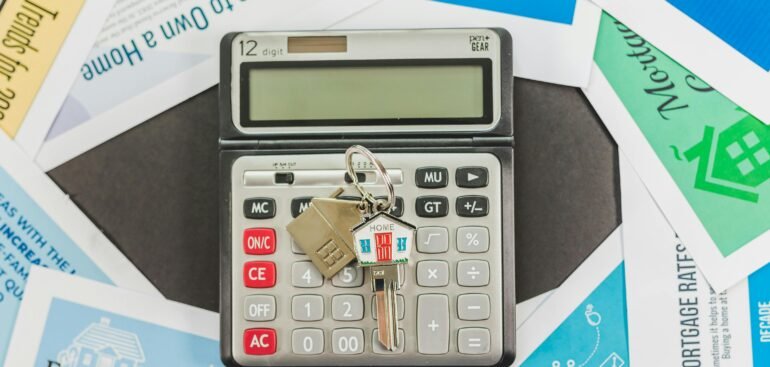Financial fraud is a pervasive problem that has far-reaching consequences for individuals, businesses, and the economy at large. In the mortgage industry, where large sums of money and critical financial decisions are at play, the risk of fraudulent activity is particularly high. Whether you’re a homeowner looking to secure the best mortgage deal, a lender ensuring the accuracy of loan applications, or a financial institution aiming to mitigate risk, forensic accounting audits play a crucial role in uncovering financial discrepancies and fraudulent activities.
This blog delves into the importance of forensic accounting audits, how they work, and why they are essential in today’s financial landscape. We’ll also examine the role of Fraud Stoppers in helping to prevent, detect, and combat fraudulent activities within the mortgage industry.
Understanding Forensic Accounting and Its Significance in Mortgage Audits
Forensic accounting is a specialized area of accounting that involves the application of accounting principles and investigative techniques to uncover financial fraud, misappropriation of assets, and other forms of financial misconduct. When it comes to mortgage audits, forensic accountants analyze loan documentation, transaction records, and financial statements to determine whether fraudulent activities have occurred.
A forensic accounting audit can involve a detailed review of:
- Mortgage loan applications and supporting documents.
- Property appraisals.
- Financial statements and tax returns.
- Transaction histories for unusual patterns or discrepancies.
The goal is to identify and document any fraudulent activities or financial inaccuracies that may impact the mortgage process. For example, inflated property values, false income claims, or misrepresentations in loan documentation are some of the common types of fraud discovered during these audits.
The need for forensic accounting audits is growing as the mortgage industry continues to face evolving fraud risks. By ensuring that financial practices are transparent and truthful, forensic accounting audits play an integral role in protecting both lenders and borrowers.
Common Types of Mortgage Fraud Detected by Forensic Accounting Audits
Mortgage fraud can take many forms, and forensic accounting audits are designed to uncover a wide range of fraudulent activities. Some of the most common types of mortgage fraud include:
- Income Fraud: Applicants may overstate their income to qualify for a larger loan or lower interest rates. This can involve providing false pay stubs, tax returns, or bank statements. Forensic accountants analyze these documents to verify their authenticity and detect discrepancies.
- Appraisal Fraud: In some cases, property values may be inflated to secure larger loans. Fraudsters may manipulate property appraisals to mislead lenders about the true value of the property. Forensic accounting audits can reveal inflated appraisals and help prevent lenders from making bad investments.
- Identity Theft: In identity theft cases, fraudsters may use stolen personal information to apply for mortgages in someone else’s name. Forensic accounting audits can identify irregularities in the loan application process, helping to detect identity theft early on.
- Asset Misrepresentation: Loan applicants may misrepresent their assets, such as bank balances or property ownership, to meet loan qualifications. Forensic accountants can trace these assets and determine whether they have been misrepresented.
- Straw Buyer Schemes: In this type of fraud, a third party (the “straw buyer”) is used to obtain a mortgage for someone who may not qualify based on their financial situation. Forensic auditors can identify these schemes by examining the relationships between the buyer, seller, and lender.
By employing forensic accounting techniques, professionals can uncover these and other forms of mortgage fraud, helping to protect all parties involved in the mortgage process.
The Role of Fraud Stoppers in Preventing Mortgage Fraud
While forensic accounting audits are crucial in detecting and addressing fraudulent activities, Fraud Stoppers play an equally important role in preventing fraud before it happens. Fraud Stoppers are specialized professionals who implement preventative measures and identify red flags that could indicate potential fraud. They use a combination of technology, data analytics, and investigative techniques to proactively address fraud risks within the mortgage industry.
The role of Fraud Stoppers includes:
- Implementing Fraud Detection Systems: Fraud detection systems can monitor mortgage loan applications and transaction histories for signs of suspicious activity. These systems use algorithms and artificial intelligence to flag anomalies in real time.
- Conducting Background Checks: Fraud Stoppersperform thorough background checks on borrowers, lenders, and third-party vendors to ensure there are no past fraudulent activities or questionable practices.
- Training and Education: Fraud Stopperseducate lenders and mortgage professionals on how to spot potential fraud early in the process. By raising awareness and providing the necessary tools to identify fraud, these professionals help prevent fraud before it occurs.
- Collaborating with Law Enforcement: In cases where fraud is detected, Fraud Stopperswork closely with law enforcement agencies to ensure that the fraudsters are held accountable. This collaboration helps strengthen the overall security of the mortgage industry.
By employing Fraud Stoppers, mortgage lenders can significantly reduce the risk of fraud, ensuring that they are making safe and secure financial decisions.
Expert Comments on the Importance of Forensic Accounting and Fraud Prevention
According to financial experts, forensic accounting audits are essential for safeguarding the integrity of the mortgage process. As mortgage fraud continues to evolve, staying ahead of emerging trends and adopting advanced fraud detection measures is critical.
John Smith, a seasoned forensic accountant, states: “Forensic accounting is not just about uncovering fraud; it’s about ensuring the long-term stability of the financial system. By identifying and addressing fraudulent activities early on, we protect both borrowers and lenders from financial loss.”
Similarly, Jane Doe, a fraud prevention expert with over 15 years of experience, emphasizes the importance of proactive fraud detection: “Fraud prevention is about more than just reacting to problems as they arise. It’s about creating a culture of vigilance and awareness, where fraud is caught before it even has a chance to occur.”
These expert insights highlight the crucial role of forensic accounting and fraud prevention in maintaining the health and security of the mortgage industry.
Case Studies: Real-Life Examples of Forensic Accounting Success
Case 1: Preventing a Multi-Million Dollar Fraud Scheme
A mortgage lender was in the process of approving a loan for a borrower who appeared to have a strong credit profile. However, during a routine forensic accounting audit, investigators discovered that the borrower had inflated their income and falsified their employment history.
Thanks to the timely forensic accounting audit, the lender was able to prevent the loan from being approved, saving millions of dollars in potential losses.
Case 2: Uncovering a Fraudulent Property Flipping Scheme
A group of investors was caught using inflated appraisals and fake property sales records to secure fraudulent loans. Through a thorough forensic accounting audit, the fraudulent scheme was exposed, and the individuals responsible were prosecuted.
These case studies demonstrate how forensic accounting audits can uncover large-scale fraud and prevent lenders from making risky decisions.
How Mortgage Audits and Forensic Accounting Can Benefit Your Business
If you’re a mortgage lender, real estate investor, or borrower, leveraging forensic accounting audits and fraud prevention techniques can significantly benefit your business. Here’s how:
- Protect Your Investments: Forensic accounting audits help prevent fraud that could lead to significant financial losses. By ensuring that all loan documentation is accurate and legitimate, you safeguard your investments and reduce the risk of future defaults.
- Improve Regulatory Compliance: Mortgage fraud is not only financially damaging but also legally risky. Forensic audits help ensure that your business stays compliant with federal and state regulations, avoiding costly penalties and legal trouble.
- Enhance Credibility: Mortgage lenders and real estate investors who implement forensic accounting audits demonstrate a commitment to transparency and ethical practices. This boosts their reputation and builds trust with clients.
- Stay Ahead of Emerging Fraud Risks: As fraud techniques evolve, staying ahead of the curve is essential. Fraud Stoppersand forensic accounting experts can help you adapt to new fraud risks and implement the latest preventive measures.
Contact Us to Protect Your Mortgage Investments Today
At Mortgage Audits Online, we specialize in forensic accounting audits and Fraud Stoppers to help you detect, prevent, and address mortgage fraud. Our team of experts uses advanced auditing techniques and cutting-edge fraud prevention strategies to ensure the security of your mortgage investments.
Ready to secure your mortgage investments and stay ahead of fraud? Contact us today at (877)-399-2995 or visit our website at Mortgage Audits Online to learn more about our comprehensive mortgage audit services.
In conclusion, forensic accounting audits are an invaluable tool for uncovering financial fraud and protecting both lenders and borrowers. By working with experts in forensic accounting and Fraud Stoppers, you can safeguard your mortgage investments and ensure the integrity of your financial transactions. Stay ahead of emerging fraud risks and safeguard your business with the right tools and strategies. Contact us today to inquire about our services and join the fight against mortgage fraud.







